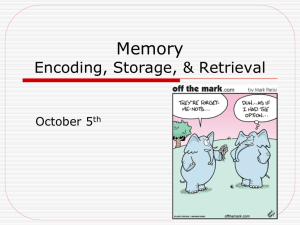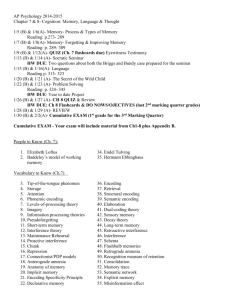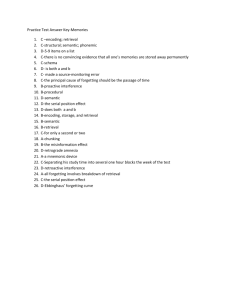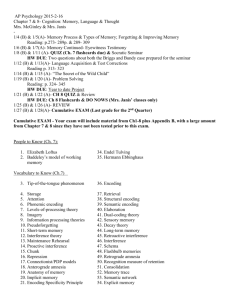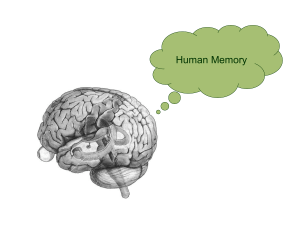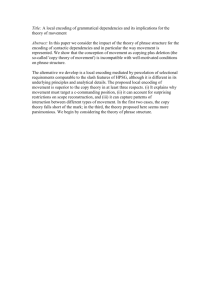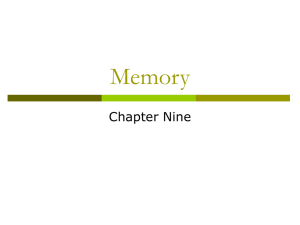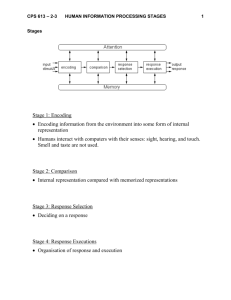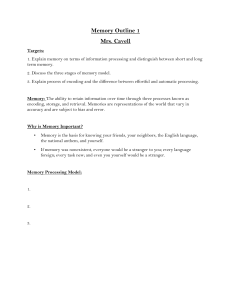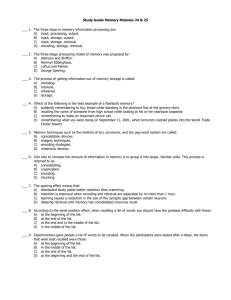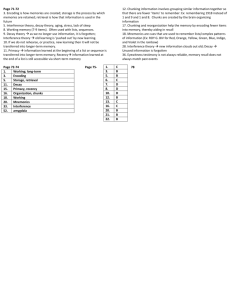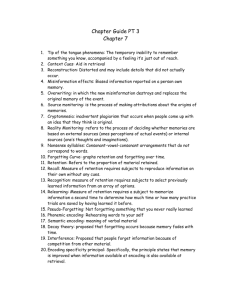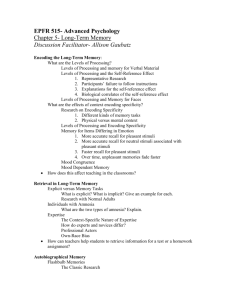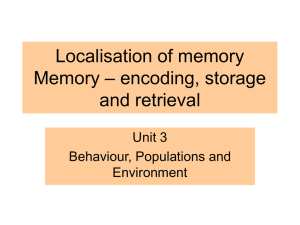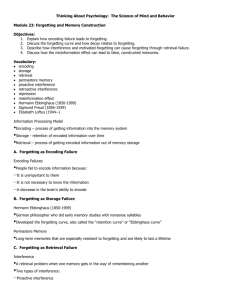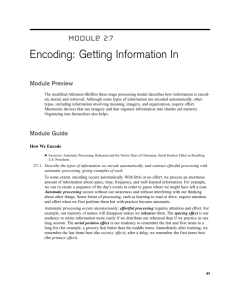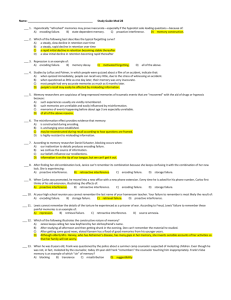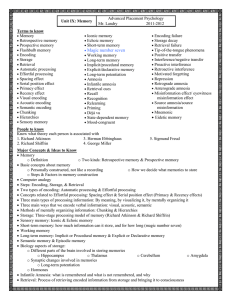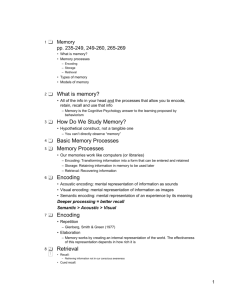Chapter 6 - De Anza College
advertisement
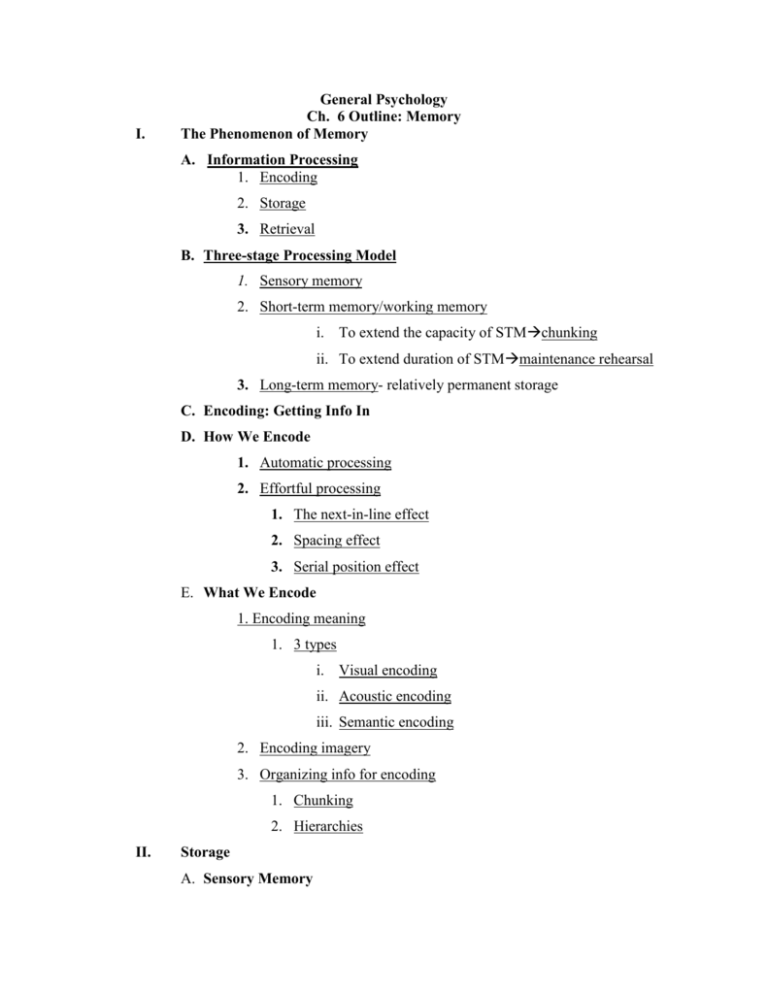
I. General Psychology Ch. 6 Outline: Memory The Phenomenon of Memory A. Information Processing 1. Encoding 2. Storage 3. Retrieval B. Three-stage Processing Model 1. Sensory memory 2. Short-term memory/working memory i. To extend the capacity of STMchunking ii. To extend duration of STMmaintenance rehearsal 3. Long-term memory- relatively permanent storage C. Encoding: Getting Info In D. How We Encode 1. Automatic processing 2. Effortful processing 1. The next-in-line effect 2. Spacing effect 3. Serial position effect E. What We Encode 1. Encoding meaning 1. 3 types i. Visual encoding ii. Acoustic encoding iii. Semantic encoding 2. Encoding imagery 3. Organizing info for encoding 1. Chunking 2. Hierarchies II. Storage A. Sensory Memory 1. Iconic memory 2. Echoic memory B. Short-Term Memory C. Long-Term Memory D. Stress Hormones & Memory E. Two Systems in LTM (Storing Implicit & Explicit Memories) 1. Implicit memory (procedural memory 2. Explicit memory (declarative memory 1. 2 subsystems i. Semantic memory- (mental dictionary/encyclo of stored info) ii. Episodic memoryIII. Retrieval: Getting Info Out A. Retrieval cue 1. Recall 2. Recognition 3. Context Effects 4. Moods & memories 1. State-dependent memory 2. Mood-congruent memory IV. Forgetting A. Encoding Failure B. Decay C. Retrieval Failure Theory (Cue Dependent Forgetting 1. tip-of-the-tongue phenomenon D. Interference Theory 1. Retroactive interference 2. Proactive interference E. Motivated Forgetting Theory V. Memory Disorders A. Anterograde Amnesia B. Retrograde Amnesia C. Alzheimer’s Disease VI. Memory Construction A. Misinformation & Imagination Effects 1. Misinformation effects 1. Imagination effects B. Source Amnesia (source misattribution C. Eyewitness Testimony VII. Improving Memory A. Study repeatedly to boost long-term recall B. Spend more time rehearsing or actively thinking about material C. Make the material personally meaningful D. To remember a list of unfamiliar items, use mnemonic devices E. Refresh memory by activating retrieval cues F. Recall events while they are fresh, before you encounter possible misinformation G. Minimize interference H. Test your knowledge, both to rehearse it & to help determine what you do not know

